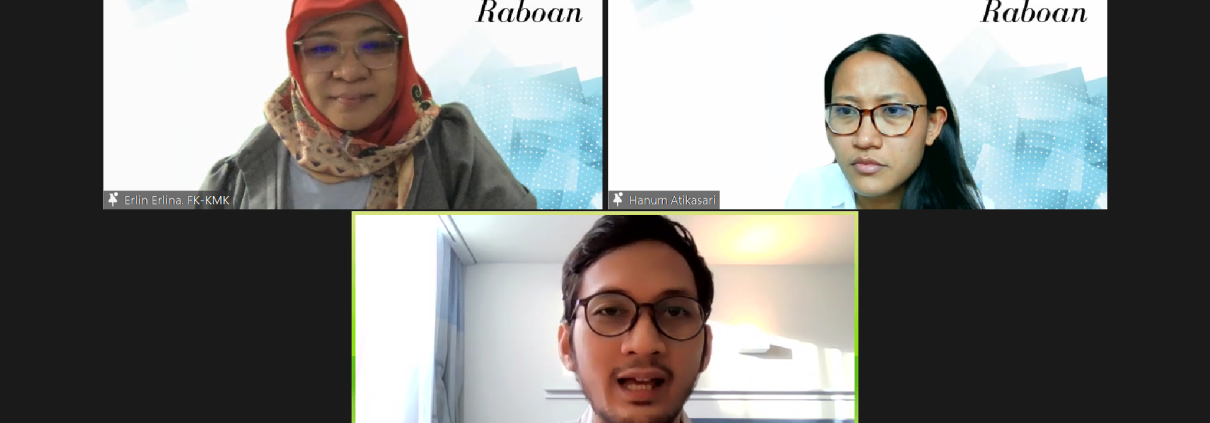End-of-life Care for Breast and Reproductive Cancer Patients in Jakarta, Indonesia (Raboan Discussion Forum)
Wednesday (23/03) Raboan Discussion Forum was again conducted by the Center for Bioethics and Medical Humanities (CBMH FK-KMK UGM). The event, which was held online via Zoom and Youtube, raised the topic of Navigating end-of-life care: An Ethnography of Women with Reproductive and Breast Cancer in Jakarta, Indonesia. CBMH FK-KMK UGM invited speaker Hanum Atikasari, MPH, a PhD Candidate – Institute of Cultural Anthropology and Development Sociology, Leiden University. The discussion was also led by moderator Erlin Erlina, S.IP., M.A., Ph.D from CBMH FK-KMK UGM.
On that occasion, Hanum Atikasari explained his research plan on end-of-life care, especially palliative care for women with breast cancer and reproductive cancer which will be conducted in Jakarta, Indonesia. The research is part of the Globalizing Palliative Care project of Leiden University’s Institute of Cultural Anthropology and Development Sociology.
Hanum explained that he was interested in researching the problem because of several backgrounds. First, the problem of access to palliative care in Indonesia is still very limited even though the practice has been introduced since 1992. Second, discussions about the end of life are still considered taboo in society. Third, the number of patients with breast cancer and reproductive cancer is still high in Indonesia, where prevention efforts so that these diseases do not become terminal are still lacking. Then the last background is the stigma that still often afflicts breast cancer and reproductive cancer sufferers in Indonesia.
Some of the questions that Hanum would like to explore further include the forms of treatment that can be used and how these treatments are carried out for women with breast cancer and reproductive cancer at the end of their life. Another question to be explored is how gender and class affect the care of women with breast cancer and reproductive cancer. In addition, Hanum also explained that he wanted to know how the patient’s companion was involved in the decision-making process regarding end-of-life care and how the perception of the patient and the companion had towards good care.
The research conducted by Hanum uses the ethnographic method. It is hoped that this research can contribute to the study of the end-of-life and can provide information and recommendations to health program planners.




Leave a Reply
Want to join the discussion?Feel free to contribute!